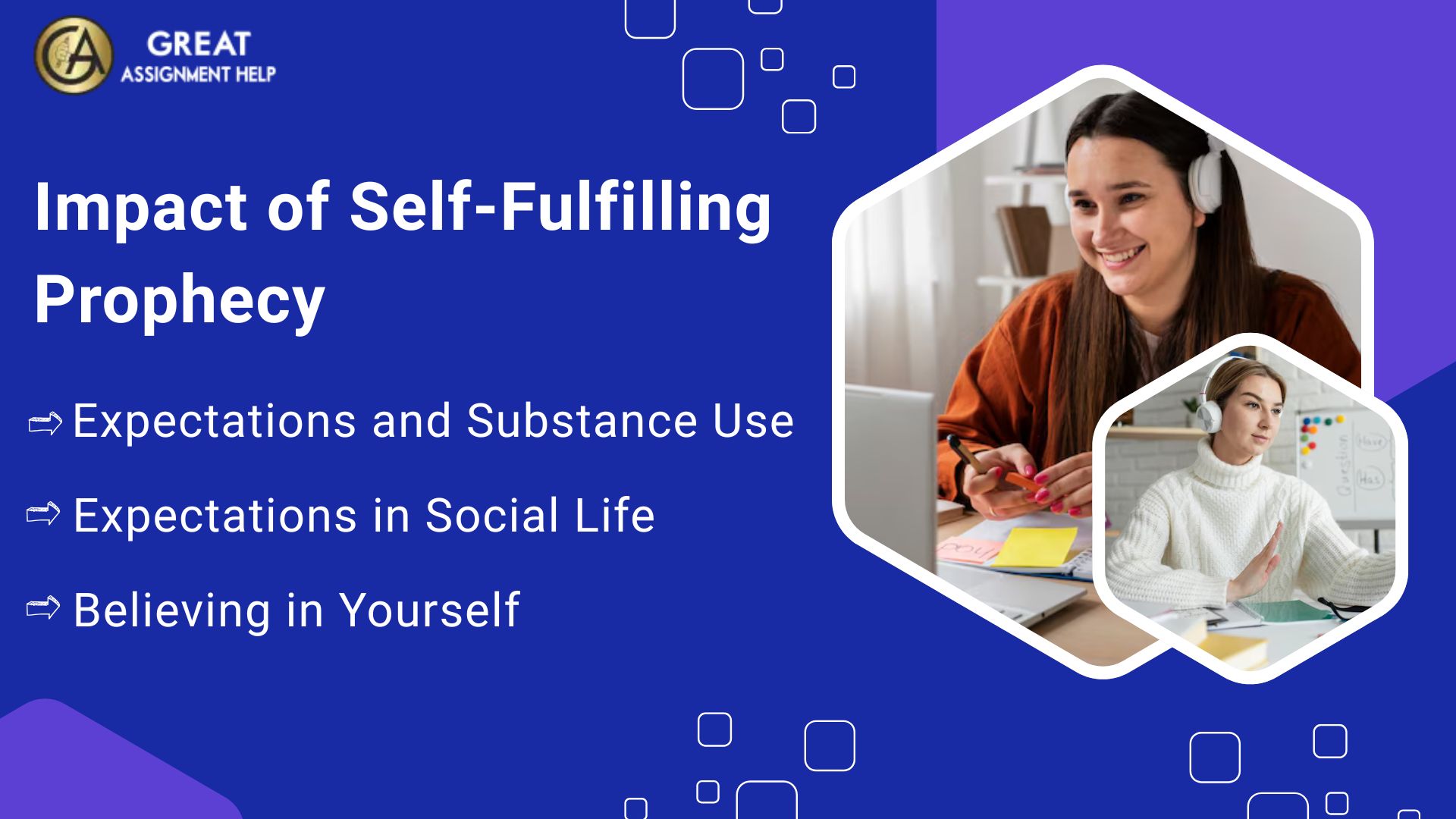This article has been reviewed and updated with current information, new examples, and the latest academic requirements for 2025
Your thoughts have power. They can shape your reality through a phenomenon called self-fulfilling prophecy. This means your beliefs and expectations can influence your outcomes. By thinking positively, you can create a brighter future and get out of limitations.
A self-fulfilling prophecy happens when a person’s prediction or belief about something becomes true because they act in a way that makes it happen. If you believe something will occur, then your actions might cause it to happen. For example, if you think you will fail an exam, you might not study as hard, and that belief could lead you to the outcome you expected. On the other hand, believing in a positive outcome can also be self-fulfilling. If you think you will do well, you might work harder and achieve your goal. In case you are interested in learning about self-fulfilling prophecy, read this blog. Here, we have shared a complete overview of self-fulfilling prophecy, including its types and impact.
What is Self-Fulfilling Prophecy?
Self-fulfilling prophecy is a psychological phenomenon that demonstrates how your thoughts and expectations influence your actions and outcomes. Generally, self-fulfilling prophecies will show you how powerful your minds can be.
You can also see self-fulfilling prophecies in how we hold stereotypes about people or groups. For instance, if a teacher has biases about a student based on their background, they might unintentionally treat the student differently. This can lead to the student performing poorly and confirming the teacher’s biases. Self-fulfilling prophecies can also affect your well-being when you have negative expectations about yourself. Your expectations can influence your behavior and ultimately lead to the outcome you predicted, even if it was not necessarily going to happen. This stands as evidence of how powerful your thoughts and expectations can be in shaping reality.
Types of Self-Fulfilling Prophecy
Self-fulfilling prophecy is of two types. They are self-imposed prophecies and other-imposed prophecies. If you are a psychology student, then you must understand the types of self-fulfilling prophecies. Here, let us learn about prophecy types.
Self-Imposed Prophecies
Self-imposed prophecies occur when your own beliefs and expectations influence your actions and behavior. This means that your thoughts about yourself can shape how you behave and the outcomes you experience. For example, in medical studies, scientists will use placebo trials to test how well a treatment works. In these trials, participants will be divided into groups without knowing whether they will receive the actual treatment or a dummy treatment. This will help researchers understand the impact of the treatment itself. Also, it will allow them to separate the treatment’s effects from the power of people’s expectations.
Other-Imposed Prophecies
Other-imposed prophecies happen when someone else’s words or actions influence your beliefs about yourself. For example, if a friend tells you, “You’re not good at this,” you might start to believe it, even if it is not true. As a result, you might doubt your abilities and perform poorly. This happens simply because someone else’s opinion has shaped your mindset. It is a psychological phenomenon that affects a person’s confidence and social growth. Moreover, it will become harder for people to reach their full potential.
Impact of Self-Fulfilling Prophecy

The concept of self-fulfilling prophecy has the power to create an impact on your lives. When you have a strong belief about something, it will influence your attitude and actions. This will shape your behavior and make the expected outcome a reality. Self-fulfilling prophecy can also affect mental health in big ways. Moreover, they can influence how you think and feel. Hence, it may often lead to problems like distress and anxiety. The following are some effects of self-fulfilling prophecy in real life
Expectations and Substance Use
Teenagers who start smoking or drinking might think they will get addicted to it easily. This expectation can make it harder for them to quit. In this example of a self-fulfilling prophecy, the prediction becomes a reality because they believed it would.
Expectations in Social Life
As social creatures, humans need daily interactions to thrive. Each person is unique, and their expectations can shape their social experiences. Research has shown that holding negative assumptions about others can harm one’s social relationships in the long run. This is an example of a self-fulfilling prophecy, where your expectations will influence how you interact with others.
Believing in Yourself
During adolescence, confidence can fluctuate due to physical and personality changes. Self-fulfilling prophecies can significantly impact a person’s self-esteem and motivation. When individuals believe in their abilities, they tend to feel more confident and focused. Generally, it will be challenging to stay motivated and focused. However, by believing in oneself, a person can make a big difference in achieving goals.
Psychology of Self-Fulfilling Prophecy
A self-fulfilling prophecy in psychology means that if you strongly believe something will happen, then your actions can make it happen. Essentially, your beliefs can shape your reality. To get a good understanding of the psychology behind self-fulfilling prophecy, look at these examples.
Placebo effect: It is a powerful example of self-fulfilling prophecy. In this scenario, people are divided into two groups. One group receives actual treatment, while the other gets a fake or placebo treatment. Interestingly, those who receive the placebo often experience improvement, simply because they believe the treatment is real. This shows how your expectations and mindset can directly influence your physical response and bring positive outcomes.
Stereotype threat: It happens when people worry that their actions will confirm a negative stereotype about their group. For example, if someone believes that a certain group is not good at something, then the people from that group might feel anxious about being judged based on that stereotype. This anxiety can affect their performance.
Sociology of Self-Fulfilling Prophecy
The concept of self-fulfilling prophecy applies to sociology as well. Robert Merton, a famous sociologist, found that our beliefs can shape reality. Sometimes, you expect something to happen, and your actions make it a reality, often without you even realizing it. Let us understand this idea better with some examples
Rosenthal Effect: It shows that your expectations can influence not just yourself, but also others. This can affect how people feel, think, and behave. A classic example of this effect is the 1960s experiment by Robert Rosenthal and Leonore Jacobson. Through the experiment, they demonstrated how teachers’ expectations can affect students’ performance.
The Pygmalion Effect: It originated from a story by the Greek poet Ovid. In the story, Pygmalion, a sculptor, fell in love with his creation and wished for a wife just like it. The gods granted his wish by bringing his creation to life. Inspired by this tale, researchers Rosenthal and Jacobson used the term “Pygmalion Effect” to describe how people’s expectations can shape others’ performance.
How to Avoid Negative Self-Fulfilling Prophecy
Self-fulfilling prophecy need not be negative. You can create a positive outcome by changing your mindset and actions. Here are some ways to do it
- Notice how your thoughts and beliefs affect your behavior. Identify any negative self-talk and reframe positively. For example, instead of thinking “I’ll never get better”, say “I’ll try my best.”
- Avoid terms like “never” or “always.” Instead, use positive phrases like “I can try” or “I’ll do my best.”
- Use realistic and true statements that promote a positive outcome.
- Find ways to make challenging experiences your own. Focus on how they benefit you and your well-being. Use statements like “I’m taking care of myself” to boost your determination.
- Build a support system with friends, family, or a therapist to stay positive.
- Remember times when you overcame difficult challenges. This can strengthen your belief in yourself.
- Allow yourself to process your emotions. Don’t feel forced to stay positive all the time. Practice self-compassion and accept your feelings.
Wrapping Up
By now, you would have gained a good understanding of self-fulfilling prophecy. If you still have doubts about this concept, you can approach our psychology assignment experts for help. By using their expertise, the professionals from our team will guide you in improving your comprehension of different psychological concepts, effectively complete your assignments on self-fulfilling prophecy, and enhance your grades.



